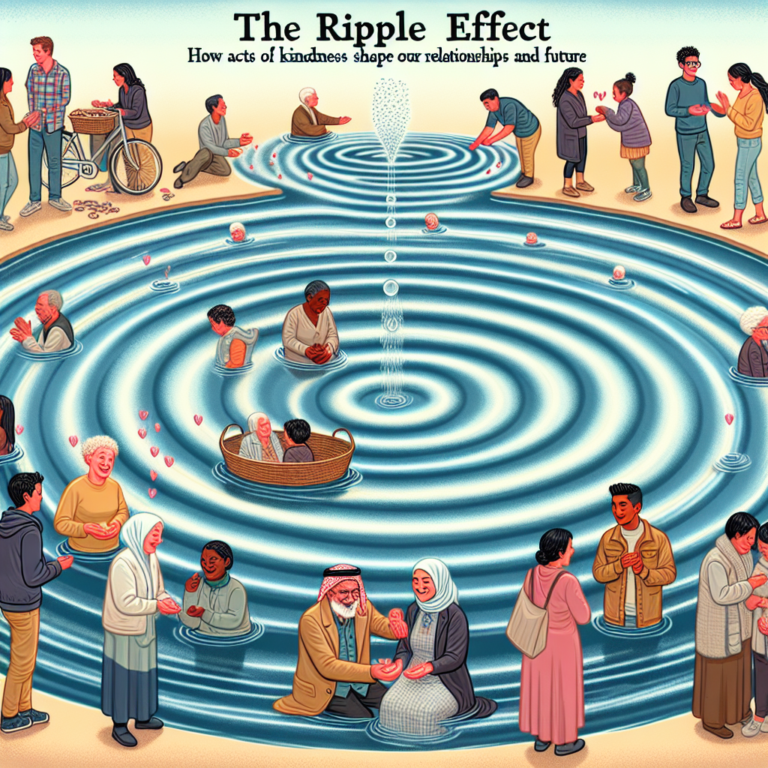Karma has emerged as one of the most misunderstood concepts in spiritual discourse. Rooted in ancient Indian philosophies, the term has made its way into popular culture, often misappropriated in ways that distort its original meaning. The idea of karma implies that good deeds will lead to positive outcomes and bad deeds will result in negative outcomes. While this may sound straightforward, the nuances of karma are much deeper, complex, and interwoven with cultural, philosophical, and spiritual threads. In this article, we will decode the essence of karma, exploring its origins, principles, and common misconceptions, while also establishing a clearer understanding of how it functions in daily life.
Understanding the Origins of Karma
The concept of karma originates from Hinduism, Buddhism, and Jainism, dating back to ancient texts like the Vedas and the Upanishads. In these traditions, karma is derived from the Sanskrit word "karman," which translates to "action," "effect," or "deed." The foundational principle of karma lies in the law of cause and effect, suggesting that every action has consequences. However, this understanding transcends mere justice; it encapsulates the idea of interconnectedness in the cycle of birth, death, and rebirth—also known as samsara.
In Hindu philosophy, karma is often linked to dharma, which refers to an individual’s duty or righteous path. Good karma is accumulated through righteous actions in alignment with one’s dharma, while bad karma is the result of actions that are unethical or harmful to oneself and others. Thus, karma is not merely about reward and punishment; it’s about growth, moral evolution, and spiritual enlightenment.
The Principles of Karma
Intent Matters: One of the essential factors in determining the nature of karma is the intent behind an action. An act performed with compassion and good intentions creates positive karma, irrespective of the outcome. Conversely, actions performed with malice, even if they accidentally result in a positive outcome, can lead to negative karma. This is the key reason why intention is emphasized in various spiritual practices.
Karma is Not Instantaneous: Contrary to popular belief, karma does not work on a one-to-one transactional basis. The effects of karma can manifest immediately, in the short term, or even in future lifetimes. This is particularly significant in the context of reincarnation, where the effects of one’s actions in a past life can influence the circumstances of their current life.
Collective Karma: While individual actions play a considerable role in determining one’s karma, collective karma also exists. Groups, societies, and even nations can accumulate karma derived from their shared actions, beliefs, and behaviors. This collective karma influences the experiences of all individuals involved.
- Transformative Potential: The principle of karma is deeply optimistic. It suggests that individuals have the agency to influence their future through their current actions. Positive choices can generate good karma and transform negative karma accrued in the past. This serves as an impetus for personal growth and self-improvement.
Common Misconceptions About Karma
Karma is Punishment: Many individuals view karma solely as a punitive measure, expecting that misdeeds must inevitably lead to harsh consequences. However, karma is not about vengeance or retribution. It is a natural law of balance, aimed at fostering spiritual growth and understanding rather than serving as a tool for punishment.
Karma is a Cosmic Scorecard: Some people adopt a transactional view of karma as if it functions like a cosmic bank account, where points are earned or lost. In reality, karma is far more nuanced. It’s not about tallying up good and bad actions, but rather understanding the impact of one’s intentions and the interconnectedness of all actions.
Karma is Only About Actions: While actions are crucial, karma is not limited to external deeds. Thoughts, emotions, and intentions also play a significant role in shaping one’s karmic outcomes. Thus, cultivating positive thoughts and attitudes can be as important as performing good deeds.
- Karma Can Be Avoided: Some people mistakenly think that by simply acknowledging bad actions, they can ‘escape’ the consequences. However, the mechanism of karma cannot be sidestepped or manipulated; it operates independently of individual understanding or belief.
Embracing Karma in Everyday Life
Understanding karma can offer profound insights into one’s life and relationships. Here are ways to embrace this principle:
Mindful Living: Practice mindfulness in your everyday actions. Consider the impact of your words and deeds, and strive for authenticity and kindness in your interactions.
Self-Reflection: Regularly engage in self-reflection to understand your motivations and intentions behind actions. Identify patterns that may have led to negative outcomes and commit to changing them.
Practice Compassion: Recognize that everyone is on their own journey with their unique lessons. Practicing compassion can help you approach relationships and conflicts with empathy.
Let Go of Judgment: Understand that karma is a personal journey. Resist the urge to judge others based on their karmic outcomes, as you may not be aware of their entire story or lessons.
- Engage in Acts of Kindness: Small, seemingly insignificant actions can contribute positively to your karmic balance. Volunteering, offering support, and practicing gratitude can all generate positive karma.
FAQs About Karma
Q1: Does karma operate in a linear fashion?
A1: No, karma operates on a non-linear basis. The consequences of actions can emerge at various times, sometimes spanning multiple lifetimes.
Q2: Can good karma be used to cancel out bad karma?
A2: While accumulating good karma can mitigate negative consequences, it does not erase bad karma entirely. Each action has its own set of outcomes and lessons, and growth comes from facing those lessons.
Q3: Is karma only a spiritual term?
A3: Although "karma" has spiritual roots, it can also be understood in a more secular sense as a concept pointing towards accountability and the moral implications of one’s actions in daily life.
Q4: What if I face undeserved suffering?
A4: Undeserved suffering can often stem from collective karma or the unresolved karma of past actions, whether from this life or previous ones. Strategies like self-reflection, compassion, and seeking help can provide insight and healing.
Q5: How can I change my karma?
A5: You can change your karma through mindfulness, positive intentions, compassionate actions, and personal growth. Engaging sincerely with your experiences will help alter karmic outcomes over time.
In conclusion, understanding karma as a complex interplay of actions, intentions, and universal principles can empower individuals to lead fulfilling, ethical, and compassionate lives. By recognizing and embracing this profound philosophy, we can navigate our existence with a greater sense of responsibility, awareness, and interconnectedness.
It looks like you entered just “Prompt.” Could you please provide more details or specify what type of prompt you’re looking for? Whether it’s for writing, discussion topics, creative ideas, or something else, I’m here to help!, #Decoding #Karma #Separating #Fact #Fiction, #Decoding #Karma #Separating #Fact #Fiction, 1736679263, decoding-karma-separating-fact-from-fiction





